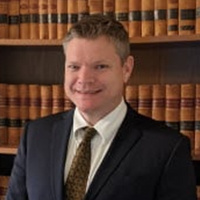Clear Lake Criminal Lawyer, Minnesota
Sponsored Law Firm
-
 x
x

Click For More Info:
-
Morris Law Group PA
7380 France Ave S. Suite 250 Edina, MN 55435» view mapCriminal Defense Law We Are Experts In What We Do
Whether it’s your home or business, you are important to us. Reach out today to set up a meeting with one of our experienced Edina lawyers.
800-872-9610
Blake D. Lubinus
✓ VERIFIEDBorn in South Dakota, raised in Iowa, and now practicing law in Minnesota, Blake is the very definition of a Midwestern lawyer. He attended the Univer... (more)
Michael A. Bryant
✓ VERIFIEDOur experienced personal injury lawyers regularly represent clients suffering from minor, serious, and catastrophic injuries. We have extensive experi... (more)
Robert Victor Jones
✓ VERIFIEDMinnesota Criminal Defense Lawyer, Robert V. Jones has more than 22 years of experience. He has been extremely successful in trying numerous cases in ... (more)
 Richard Morris Edina, MN
Richard Morris Edina, MN Practice AreasExpertise
Practice AreasExpertise



